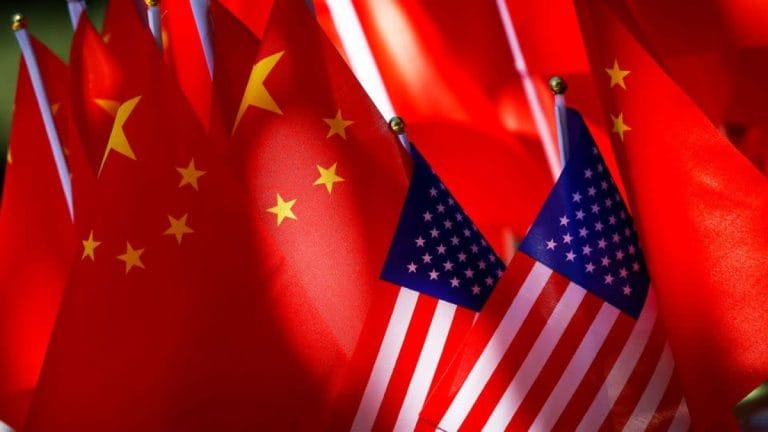🎧 Listen to This Article
Beijing is reviewing a proposal from Washington to resume trade talks over sweeping U.S. tariffs, but warned against what it described as “coercion and extortion,” in a statement signalling cautious openness to de-escalation.
The offer relates to import duties of up to 145% imposed under the Trump administration on a wide range of Chinese goods. China’s Ministry of Commerce confirmed on Friday that the U.S. has made multiple informal overtures through third parties requesting negotiations.
Read More: China Exempts U.S. Imports from 125% Tariffs: A Strategic Shift Amid Trade War Escalation
“China is currently evaluating the U.S. initiative,” the ministry said, while cautioning that “any attempt to use talks as a tool for extortion will not succeed.”
The remarks follow recent speculation, amplified by Chinese state-affiliated media, that the U.S. had approached Beijing to re-engage on trade. Former President Trump, now campaigning for re-election, claimed last week that negotiations were already underway, an assertion Beijing quickly denied.
The tone of China’s official response hints at a potential shift in a years-long tariff standoff that has rattled markets and battered bilateral trade. However, Beijing made clear that any dialogue must be based on mutual respect and the rollback of what it termed Washington’s “erroneous practices.”
Trump’s tariffs, originally designed to curb China’s economic rise and address trade imbalances, prompted sharp retaliatory levies by Beijing. In April, China raised duties on certain American imports to as high as 125%. Analysts say both sides’ tariffs, now surpassing thresholds that make trade commercially untenable, have severely dented supply chains and global commerce.
Despite public denials, Beijing has quietly begun exempting select U.S. goods, including pharmaceutical components, semiconductors, and jet engines, from retaliatory tariffs, suggesting room for tactical compromise.
In parallel, the Biden administration has moved to end duty-free access for low-value shipments from China and Hong Kong under so-called “de minimis” rules. The move, while technical, is viewed as a symbolic tightening of economic pressure.
Still, U.S. officials struck a more optimistic tone this week. Treasury Secretary Scott Bessent expressed confidence in the possibility of renewed talks. “This will be a multi-step process,” he told Fox Business. “First we need to de-escalate. Then we can focus on a broader deal.”
President Trump echoed that sentiment, saying he saw a “very good chance” of striking an agreement, even as Chinese President Xi Jinping urged his leadership to prepare for an evolving global landscape.
For now, both sides appear to be posturing while keeping diplomatic channels cracked open.
For further details, clarification, contributions, or any concerns regarding this article, please get in touch with us at editorial@tax.news. We value your feedback and are committed to providing accurate and timely information. Please note that our privacy policy will handle all inquiries.



